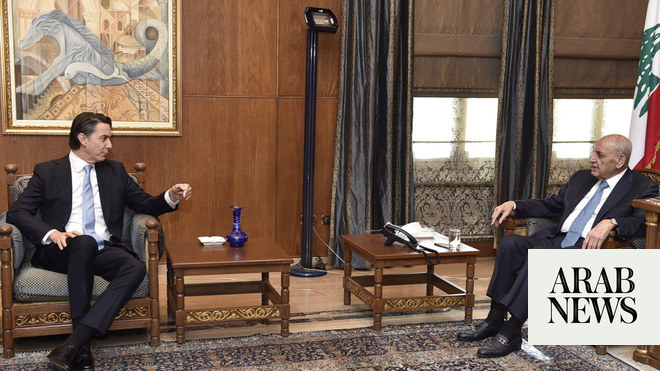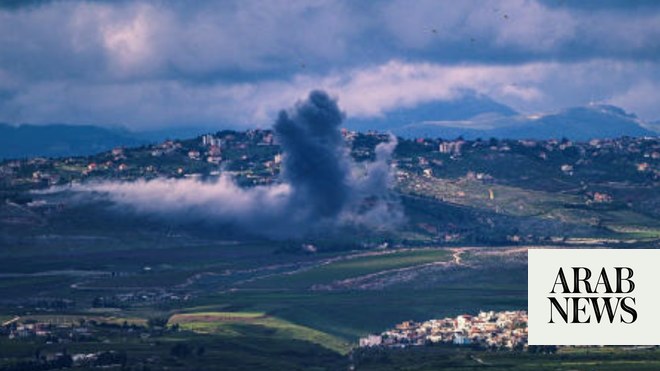
Lebanon deemed on Wednesday any attempt by Israel to build a border wall with it an “assault on Lebanese land,” while Tel Aviv said that it wanted to resolve an energy dispute with its northern neighbor through diplomatic means.
Lebanon’s Higher Defense Council convened to tackle the latest Israeli threats against the country, stressing: “This wall, if it is built, will be considered an assault on Lebanese land.”
Lebanese leaders have accused Israel of threatening the stability of the border region. Arguments over the wall and Lebanon’s plans to explore for oil and gas in disputed Mediterranean waters have increased friction between the two enemy states.
The council “has given its instructions to confront this aggression to prevent Israel from building (the wall) on Lebanese territory,” it said, without elaborating.
The council includes President Michel Aoun, Prime Minister Saad Hariri and other ministers and security officials, including Army Commander Joseph Aoun.
Israel has said the wall is entirely within its territory.
One Israeli official told Reuters that parts of the wall were being erected closer to the border than a current frontier fence, which in places runs well to the south due to topography.
The Lebanese government says the wall would pass through land that belongs to Lebanon but lies on the Israeli side of the Blue Line, where the United Nations demarcated Israel’s military withdrawal from southern Lebanon in 2000.
Andrea Tenenti, spokesperson for the United Nations Interim Force in Lebanon (UNIFIL), said the force is "fully engaged with both parties in order to find common solutions."
"Any work that is conducted along the Blue Line should be predictable and also coordinated with UNIFIL in order to prevent misunderstanding and decrease tension," he told The Associated Press in an interview at the UNIFIL base in the town of Naqoura, in south Lebanon on Wednesday.
Lebanese and Israeli military officials met Monday to discuss the issues in regular UN-sponsored talks. Tenenti said both parties demonstrated their commitment to preserve stability.
Meanwhile, Lebanon’s first offshore oil and gas exploration tender drew condemnation last week from Israeli Defense Minister Avigdor Lieberman. He called it a “very provocative” move and urged international firms not to participate.
The two countries have an unresolved maritime border dispute over a triangular area of sea of around 860 sq km (330 square miles). The zone extends along the edge of three out of five energy blocks that Lebanon put to tender early last year.
In December, Lebanon approved a bid by a consortium of France’s Total, Italy’s Eni and Russia’s Novatek for two blocks.
One of these, Block 9, juts partly into waters claimed by Israel. In a conciliatory tack from Lieberman’s remarks, Israeli Energy Minister Yuval Steinitz on Wednesday mooted negotiations.
“There is a dispute, which is no secret - it’s been going on for years - over the border demarcation between our economic waters and Lebanon‘s,” he told the Israeli news site Ynet.
“We hope for, and are prepared to move forward on, a diplomatic resolution to this matter.”
Steinitz said that, in 2013, US intermediaries had come close to clinching a deal involving “a kind of compromise”.
“The Lebanese too have their own economic waters in which they want to search for gas and oil,” he added. “And they have such a right - so long as they do not threaten and certainly not penetrate our demarcated waters”.












